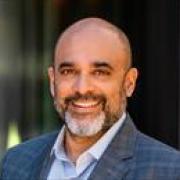Professor, Medicine, Hematology-Oncology
Program Director
Dr. Catherine Smith is a hematologist-oncologist who cares for patients with acute leukemia and myeloproliferative neoplasms (blood cancers that occur when the body overproduces one of the blood cell types). She specializes in acute myeloid leukemia (also known as acute myelogenous leukemia or AML), a cancer of the blood and bone marrow that spreads rapidly. She has a particular interest in treating AML patients who have mutations in the FLT3 gene, which is involved in leukemia cell growth, division and survival and is a factor that may be useful in making a prognosis.
